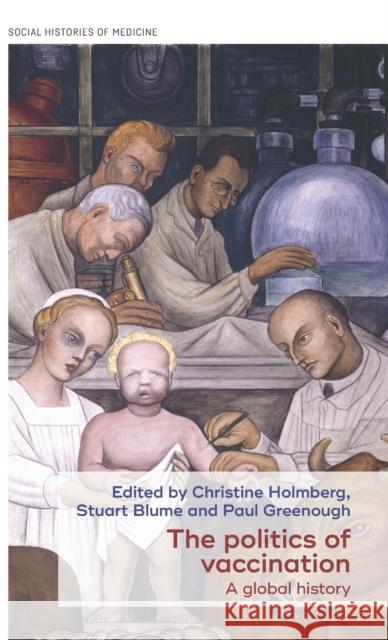The Politics of Vaccination: A Global History » książka
The Politics of Vaccination: A Global History
ISBN-13: 9781526110886 / Angielski / Twarda / 2017 / 360 str.
In The politics of vaccination scholars from across the globe provide a comparative overview of vaccination policies at different times, in widely different places and under different types of political regime. Contributors analyse vaccination in relation to state power, concepts of national identity and solidarity and of individuals' obligations to self and others. They explore relationships between vaccination policies and vaccine-making and the discourses and debates on citizenship and nationhood that have often accompanied mass campaigns. The analysis unmasks the idea of vaccination as a simple health technology and makes visible the complexities in which vaccination is embedded.
Core themes include vaccination programmes as an element of state formation; citizens' articulation of seeing (or not seeing) their needs incorporated into public health practice; allegations that development aid has inappropriately steered third-world health policies; and an ideological shift that regards vaccines as marketable and profitable commodities rather than as essential tools of public health. Above all the essays suggest vaccination is a novel lens through which to view historical changes in 'society' and 'nation'.
The politics of vaccination is completed with an afterword by William Muraskin in which, reflecting on his years of work on the history of vaccination, he focuses on the role of a small group of global health leaders. This group launched major disease eradication programmes, prioritising specific types of health care intervention irrespective of their compatibility with the priorities of individual nations. The collection in its entirety shows how such 'globalised' approaches may foster political upheaval and will be of interest to students, researchers and teachers in global health.











